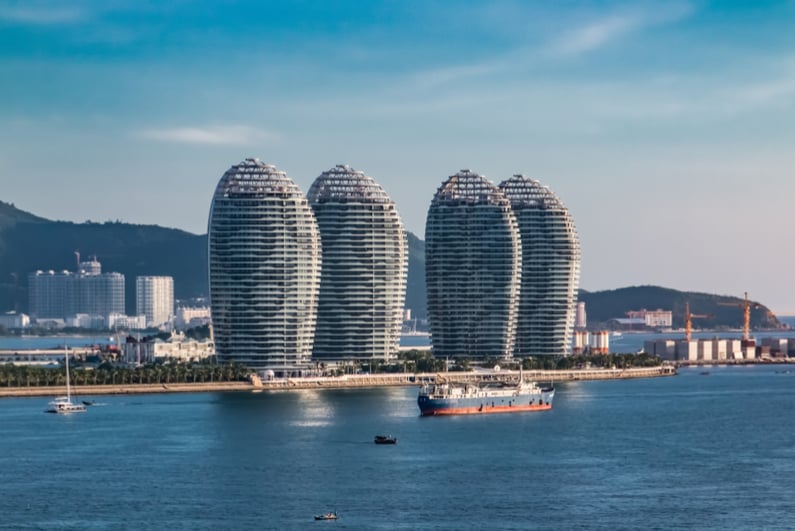The elite of an island dubbed China’s Hawaii are hopeful that China’s president will eventually allow casinos that could rapidly transform it, bringing more tourists to the tropical destination.
Today Xi Jinping visited the island of Hainan, nestled near the Vietnam border along the South China Sea, which is known for its beach resorts, forested and mountainous interior, and tropical climate. It is here that China’s president will use the Boao Forum for Asia as a platform to ensure that the country is still open for business as usual despite a brewing trade war between the US and China.
Low tourist numbers
In 2017, 67 million people visited the island, double the number from 2012, and spent 81b yuan (US$12.8b; £9.0b), but only one million of those visitors came from abroad. Compare this with Bali, an Indonesian island, which is a fifth of the size of Hainan and still received 5 million international visitors in 2016, according to the South China Morning Post.
Liu Yong, a regional development economist at Development Research Centre for the State Council, says that tourist attractions and facilities on the island of Hainan are not enough to compete with the likes of Bail or Thailand. In order to get the island up-to-date and become an attractive location for visitors to see, proposals were considered for the international tourist board. These included duty-free, visa-free visits, and even the legalization of gambling.
However, when the plan was finalized in 2010, the ideas were downgraded: A few duty-free shops for domestic tourists were built and legal gambling was limited to sport lotteries.
Yet Wendy Liu, a Shanghai-based analyst with UOB Kay Hian Investment Co., said in February: “If the model developed in Macau is tapped, then tourism and entertainment industries may be boosted along with gambling. The province may attract more shopping malls, hotels, providing an opportunity for related developers.”
Not only that, but neighboring countries such as Vietnam and the Philippines already have casino resorts to attract the outflow of Chinese gamblers. But, if gambling was legalized in Hainan, it’s thought that travelers would prefer to visit the island, closer to home, rather than travelling great distances.
Reducing capital outflows
While many investors aren’t expecting Xi to announce the legalization of gambling on Hainan, they are hopeful that the island will attract a significant number of gamblers to help boost its economy, which relies heavily on tourism. At present, gaming is banned across mainland China while the tourism that the island receives is a fraction of the country’s outlay.
Hotel magnate Zeng Xianyun is one investor who hopes that Xi makes changes so that gambling becomes legalized. According to Zeng, that would make the island the first mainland province with casinos to cut capital outflows. A report from Bloomberg states that outside of mainland China, in Macau, where casinos are allowed, the majority of revenue still goes to international operators such as Las Vegas Sands Corp. and MGM.
Zeng, who is chairman of Phoenix Island, an artificial archipelago off Hainan’s southeastern shore that has a cruise ship terminal, luxury hotels, and apartments, said: “We need to take the issue seriously instead of avoiding it. We can’t let this big cake be eaten all by foreign capital.”
Gambling debate increases
Discussions regarding legalizing gambling in Hainan have increased in recent months. Back in February, it was reported that government agencies under a party reform group headed by Xi are considering permitting online gaming, lottery, or sports betting on the island. Even though the policy proposal is still in its early days, it could open the door to physical casinos in the long term.
